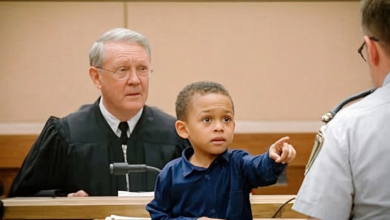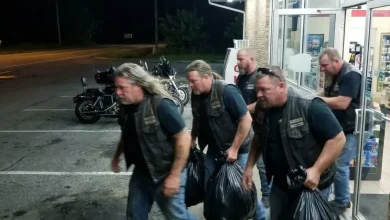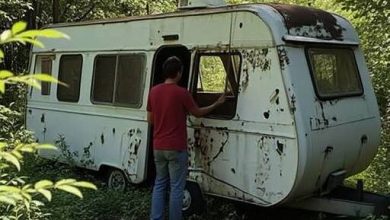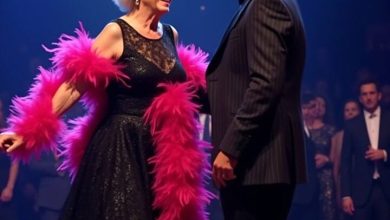
Grandma’s Last Gift
I read my grandmother’s note about fifty times the night my aunt handed it to me. The handwriting shook, but the words were sharp: “Your parents will try to take this from you. Don’t let them. You’ve always been the one who needed a chance. Take it.” It felt like a warm blanket and a slap at once. I cried like a kid on the twin bed in the apartment I could finally afford.
I wasn’t the favorite growing up. My parents were loud—opinions, expectations, demands—and my brother had the kind of charm that turned trouble into opportunity. I was just… me. Quiet. A stack of student loans, a breakup that scavenged my savings, a job that emptied me a little more every day. Grandma always saw past the noise. The inheritance she left wasn’t a fortune, but it cleared the cards, paid off my car, and bought me time. More than that, it felt like belief.
When I refused to sign the papers my parents slid across the table—money for my brother’s business, a chunk to ease their mortgage—they stopped speaking to me. My mom texted, “You’ve changed.” I wrote back, “Maybe I finally got honest.” She never replied. The silence hurt for a while, then it became a kind of peace.
I quit the marketing job that ate my soul and picked up hours at a downtown bookstore. It didn’t pay much, but it gave me back my breath. At night, I wrote. I’d been filling notebooks with half-stories since middle school, but I’d never believed they were worth sharing. Grandma had. “You’ve got a voice, honey,” she’d say, catching stray pages at her house. “Don’t let the world silence it.”
So I posted a few pieces online under a fake name and waited for the void to swallow them. It didn’t. A comment appeared. Then another. A small community gathered—people who said my words made them feel less alone. I didn’t tell anyone at first. Then I met Liana at the shop. She listened more than she spoke, remembered the small things, and made my heart stutter like music hitting the right note. One evening, crunching leaves on the walk home, I told her about the inheritance. “She must’ve really seen you,” she said. I nodded and, for once, didn’t cry.
Liana became the second person to read my work. She curled on my couch with printed pages and a pen, writing in the margins: “This line lands,” “Say the thing you’re avoiding,” “You have something to say.” When she said it, I believed her. Six months later, I self-published a small collection. It didn’t blow up, but it reached the right eyes. An editor emailed and asked if I’d ever thought about a novel. I stared at the subject line until the words blurred, then forwarded it to my aunt: “She was right.” My aunt replied: “She always was.”
The first draft was chaos. The second hurt. By the third, I felt like I was bleeding truth. It was fiction, technically, but every page held a piece of Grandma and the versions of me I’d hidden. A year later, the book came out. No billboards, no big party—just enough buzz to be real. A podcast invitation led to a morning show; a librarian emailed to say a teenager in her town felt seen because of my story. That was the moment that counted. People were listening.
Then my brother walked into the bookstore. No call, just a tailored coat and that old smile. I nearly dropped a box of bookmarks. “Hey, sis,” he said, like we hadn’t gone months without words. I asked what he wanted, ready for the pitch. “To talk,” he said. “I read your book.” I blinked. He said he cried. We sat on the bench by the coffee shop, and he told me the business failed, he’d moved back in, and our parents were angry with him for “letting me get away with the money.” “I didn’t let you do anything,” he said. “You did the right thing. I didn’t see it until now.” It wasn’t an apology, not fully, but it was a crack in the wall. I told him about Grandma’s note. He stared at the street and said, “She loved you differently. I thought it wasn’t fair. Maybe she saw what we didn’t.”
The book did better than anyone expected. I spoke at two universities. My agent—still strange to say—called one morning to say a film company wanted to option the rights. I stood in my kitchen, toast forgotten, and whispered, “Thank you, Grandma,” to the quiet.
Then another letter arrived. Handwritten, no return address. Inside was a copy of my grandmother’s original will—not the one my parents had waved last year. In this version, she left me everything: cash, house, land, jewelry, paintings. Tucked inside was one line: “If they try to change the story, tell your own.” Turns out, my parents had forged a version and tried to push it through. Grandma, meticulous as ever, had mailed the real one to a lawyer in another state and instructed him to send it to me a year after she died.
I could’ve pressed charges. I could’ve gone public. Instead, I mailed my parents a copy of the real will with a note: “I know.” They never replied. My aunt called and said, “Your grandma knew exactly what she was doing.”
I kept the house. Small, with creaky floors and a garden that had gone wild, but it felt like it had been waiting for me. Liana and I moved in that spring. She planted sunflowers; I painted the walls. We dragged in secondhand furniture and first-rate joy. We hosted dinners and game nights and little workshops at the kitchen table. The neighbors started calling it “the story house.”
Sometimes I still hear Grandma in the back of my mind, soft and steady: “You’ve got something to say, honey. Say it.” So I do.
My brother comes by sometimes. We sit on the porch steps with iced tea and careful conversation. We don’t fix the past. We keep choosing peace. My parents remain silent. I set the boundaries I should’ve set years ago and let the ache be what it is.
If there’s a moral, it’s simple. People close to you might not believe in your voice. They might try to revise your story to suit their needs. But you get to decide whose script you carry. If you’re lucky, someone—maybe a grandmother, maybe a friend—will hand you permission when you can’t find your own. Not because of money or success, but because you kept going when everything around you said stop.
So here’s to the quiet ones, the overlooked, the trembling hands with loud hearts. Your story matters. Keep telling it.




